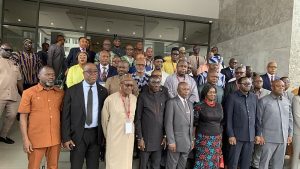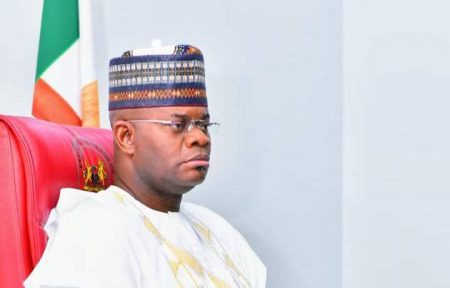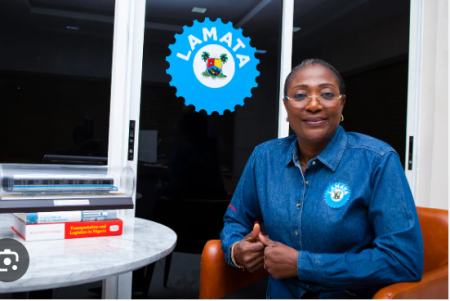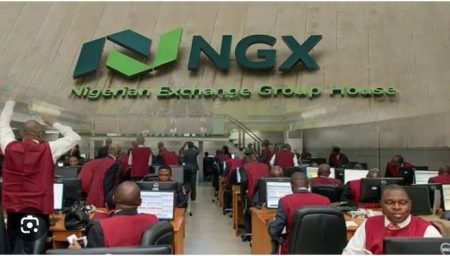Paragraph 1: Introduction of the New Import Duty Structure
The Nigerian Customs Service (NCS) is poised to introduce significant changes to its import duty structure, aiming to simplify the process and potentially reduce costs for importers. The core change involves the reintroduction of a 4% Free on Board (FOB) charge, a fee calculated based on the value of imported goods, including the cost of the goods themselves and transportation expenses to the port of loading. This charge, mandated by the Nigeria Customs Service Act (NCSA) 2023, is intended to streamline the NCS’s operations and provide a more transparent and predictable cost structure for importers.
Paragraph 2: Elimination of Existing Fees and Stakeholder Concerns
Crucially, the implementation of the 4% FOB charge will lead to the elimination of two existing fees: the 1% Comprehensive Import Supervision Scheme (CISS) fee and the 7% Cost of Collection. These fees have been a source of contention for stakeholders, adding complexity and cost to the import process. While the NCS initially announced the 4% FOB charge earlier this year, it faced widespread criticism and temporarily suspended its implementation. The current reintroduction reflects the NCS’s renewed commitment to the charge while simultaneously addressing stakeholders’ concerns by removing the existing CISS and Cost of Collection fees.
Paragraph 3: Stakeholder Engagement and Initial Positive Reception
The NCS has actively engaged with stakeholders in the maritime industry, including banks, freight forwarders, and other relevant agencies, through a town hall meeting focused on the new B’Odogwu clearance platform. This platform, an indigenous Unified Customs Management System, aims to further enhance trade compliance and optimize the customs clearance process. Initial feedback from stakeholders has been largely positive, with many commending the improved user-friendliness and efficiency compared to the previous system. The increased level of stakeholder engagement demonstrated by the NCS in the development and rollout of the B’Odogwu platform signifies a shift towards greater transparency and collaboration.
Paragraph 4: Addressing Challenges with the B’Odogwu Platform
Despite the positive reception, stakeholders have also identified several challenges that need to be addressed to ensure the B’Odogwu platform’s seamless operation. These issues include the migration process from the old platform to B’Odogwu, limitations in banks’ ability to make amendments on the platform, and discrepancies in the classification of Harmonised System Codes between the Standards Organisation of Nigeria (SON) and the National Agency for Food and Drug Administration and Control (NAFDAC). The NCS is actively working to resolve these challenges, recognizing the importance of a fully functional and integrated system for efficient trade facilitation.
Paragraph 5: Specific Stakeholder Feedback and Benefits Realized
Specific stakeholders, such as the Factory Logistics Manager of British American Tobacco, have highlighted the significant improvements in stakeholder engagement under the B’Odogwu platform, contrasting it with the challenges faced under the previous system. The new platform addresses issues such as user-friendliness and network stability, contributing to a smoother and more predictable customs process. The Head of SON’s Conformity Assessment Program also acknowledged the improvements in the transmission of SONCAP (Standards Organisation of Nigeria Conformity Assessment Programme) certificates under the new platform. These positive endorsements underscore the potential of the B’Odogwu platform to significantly enhance the efficiency of trade operations.
Paragraph 6: Conclusion and Future Outlook
The NCS’s planned changes to the import duty structure, coupled with the introduction of the B’Odogwu platform, represent a significant step towards modernizing and streamlining the customs process in Nigeria. While challenges remain in fully integrating the new system and addressing specific stakeholder concerns, the initial positive feedback and the NCS’s commitment to ongoing engagement suggest a promising trajectory for improved trade facilitation. The elimination of existing fees, coupled with the enhanced transparency and efficiency of the B’Odogwu platform, has the potential to reduce costs and complexity for importers, ultimately contributing to a more conducive environment for trade and economic growth in Nigeria.














